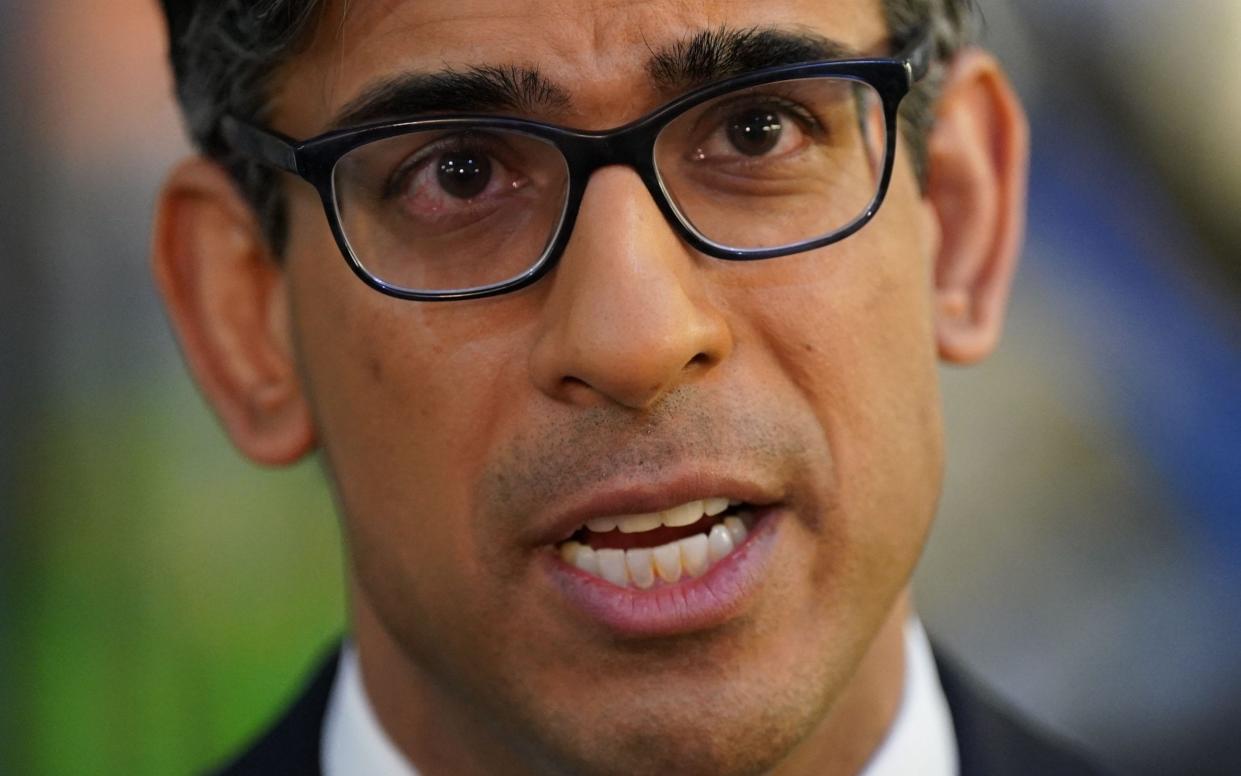Stop this chilling assault on business and free speech

- Oops!Something went wrong.Please try again later.
- Oops!Something went wrong.Please try again later.
Last summer, when he was campaigning to succeed Boris Johnson as prime minister, Rishi Sunak described the 2010 Equality Act as “a Trojan horse that has allowed every kind of woke nonsense to permeate public life” and promised to prevent its influence extending further.
Yet far from guarding watchfully against the Act’s “mission creep”, his Government may yet preside over just such a baleful extension of its remit. If it passes unamended through Parliament, new legislation will cause havoc both for private-sector businesses and for public services, including the police and the NHS.
What makes the Worker Protection Bill all the more extraordinary is that it is a private members’ bill sponsored by two Liberal Democrat parliamentarians, which has somehow slipped through repeated readings in the House of Commons without proper scrutiny.
Its first reading came shortly before Mr Johnson’s administration collapsed; its second the day after Liz Truss resigned as prime minister. Eventually it was waved through the Commons without a vote on a Friday sitting when most MPs were not in Westminster but back in their constituencies.
It is hardly as if the consequences of the legislation are not serious. It seeks to amend the Equality Act to make employers liable for staff being harassed by “third parties” such as customers or members of the public. Waiters could take coffee shops to court if conversations they overhear distress them. Doctors and nurses may be able to sue the NHS if a patient verbally abuses them. Moreover, it is feared that a defence based on “freedom of speech” protections will do little to shield businesses from potentially devastating legal costs and damages for words and actions of third parties entirely beyond their control.
The result, worry some senior Conservatives who are now coordinating a backbench revolt against the Bill, is that workplaces will have to be run like a “police state”, with conversations scrutinised and vetted to ensure that nothing is said or done that could possibly cause offence. It would clearly have a chilling effect on free speech, already under attack on so many fronts.
There are two explanations for the passage of this damaging Bill to the brink of becoming law: one is that the Government is determined that it should pass and has lost its political bearings; the other is that it has been distracted or not fully understood the implications of the legislation.
We assume that it is the latter. For there is still time to review the Bill and ensure that it can never have the deleterious effect on private business, public services and free speech that it will have in its current form. Mr Sunak should be true to his word last summer and stop this legislation now.

